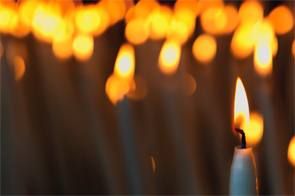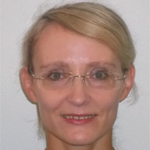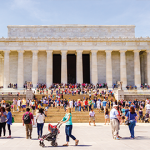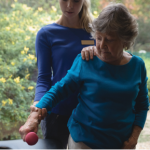
FreeProd33/shutterstock.com
Friday, Nov. 13, 2015. The day Paris came under attack—again.
What Came Before
Not even 48 hours before that day, I had said my last goodbyes: the teary eyes, the final hugs, promising to stay in touch and, perhaps, see my friends next year at the ACR/ARHP Annual Meeting. Snap and share another photo. I rushed to attend a final lecture, where I met a colleague of French Canadian heritage. We laughed and caught up with one another during brunch and a conference break. Post lecture, I took advantage of my last hours in San Francisco to enjoy a fabulous cruise to what was once considered a not-so-fabulous destination—Alcatraz—and a few hours later, I was at the terminal waiting for the red-eye flight home. My eyes tired of lectures and my hand fatigued from writing notes, the luggage seemed much heavier than when I had arrived just a few short days before.
After an early a.m. landing in Boston, I continued to the clinic for a full day’s roster of patient care. Although I was exhausted, a cup or two of coffee brought me up to speed, and I began balancing patient care with pleasant memories of what was a most enjoyable West Coast conference.
Where Were You?
Do you recall what you did or where you were on that date when the world (sadly, again) seemed to stop for a moment, when madness took over and you felt like you were watching a horrendously violent movie, but instead, you realized it was reality? Piece by piece, I learned about the Parisian terrorist attacks, and my heart paused for a moment as my tired mind tried to connect the dots.
Reflections
I am American. I am European. I am Polish. I am also the mother of a U.S. citizen. I was just back from a wonderful meeting of 16,000 rheumatologists from all corners of the planet. But now, only hours later, tragedy in one of those corners had turned all of our days much dimmer and darker.
Just a couple days before, during an after-lecture dinner with familiar colleagues, we had shared our thoughts about the size of the meeting, a few of us expressing how the size and scope of the event could be overwhelming. I observed that the larger the better because I enjoy the international exchange of information, the large crowd where you can choose to be as visible or as anonymous as you wish, reading foreign nametags and guessing the nationalities of the professionals to which they are attached. What a joy! I was so excited and pleased to attend such informative lectures delivered by citizens of countries ranging from nearby Canada to the distant shores of Turkey and beyond.
I pray that we do not move backward, that we remain humane to those in need, that we grieve, yet move on, working for sound solutions to issues that may divide us.
We should not treat lightly the opportunity to be a part of the Annual Meeting. It takes such an effort for all of us to make the necessary accommodations, both personal and political, simply to get there. Crossing actual and allegoric borders, negotiating airport security, customs and flights, juggling obligations of work and family, dealing with financial restraints and other numerous factors that must be addressed in order to attend such an event. The pleasant aftermath is that we all made it and enjoyed an exchange of both knowledge and social contact. The wonderful end result was getting to learn what is new and exciting in rheumatology while visiting a beautiful destination far from home. Not everyone is granted that opportunity. Will the recent attacks decrease our opportunities to continue doing so in the future?
Sadly, we must address another aftermath. Will the seemingly endless tirade of shootings, explosions, death and terror leave in their wake other lingering aftermaths– the pervasive fear of another, maybe more devastating, attack or the fear by and of refugees seeking shelter for themselves and their loved ones?
There is a lot to fear: Will life return to the normal that we previously enjoyed? Will we be able to congregate in cafés, hearing music and laughter, without wondering if we soon will hear machine gunfire or grenades exploding? Will we be allowed to meet safely for another large conference without barricading the buildings, policing the city block and putting metal detectors at each doorway? Will medical students from abroad or those not conveniently fitting certain profiles or stereotypes be allowed to practice or train in the American medical system without fear of unfair or biased treatment or blunt refusal based on ethnicity, religion or faith?
Move On
I pray that we do not move backward, that we remain humane to those in need, that we grieve, yet move on, working for sound solutions to issues that otherwise may divide us. We need to continue seeking strength in both ourselves and others to make us stronger and united against those that seek to impair and destroy our lives. Although there may be monsters in our midst, we cannot overcome the beasts by quietly ceasing to get out and live our lives.
Although admittedly a small, if symbolic, step, I encourage all of us to participate in our Annual Meetings, enlightening our domestic lives with all that our international colleagues have to offer. To that I will raise a glass of fine French wine and hope to see all of you next year!
 Katarzyna Gilek-Seibert, MD, is a staff rheumatologist at Roger Williams Medical Center, Providence, R.I., and affiliated with the Boston University School of Medicine. Contact her via email at [email protected].
Katarzyna Gilek-Seibert, MD, is a staff rheumatologist at Roger Williams Medical Center, Providence, R.I., and affiliated with the Boston University School of Medicine. Contact her via email at [email protected].

